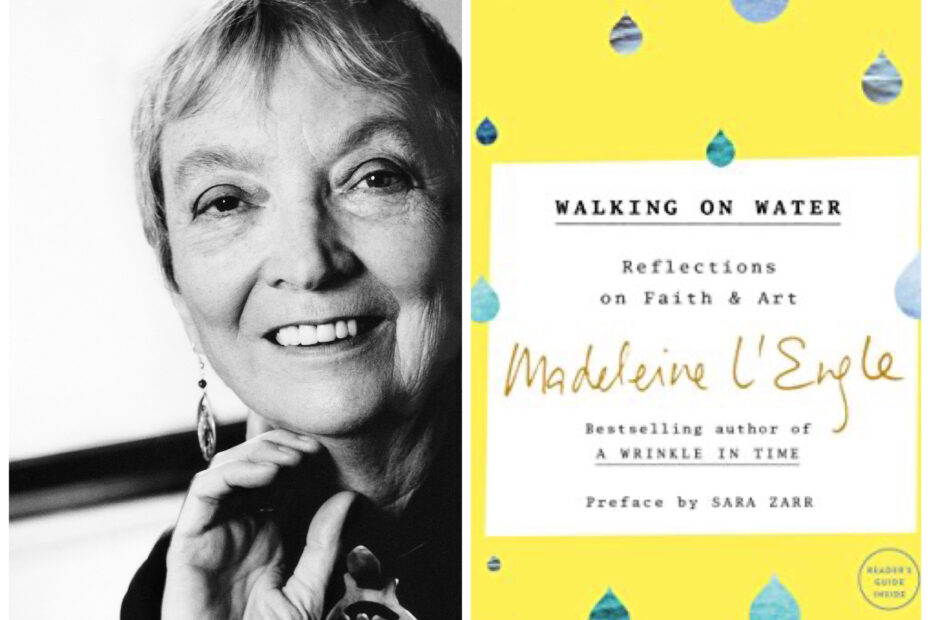On this International Women’s Day, I want to take a moment to recognize Madeleine L’Engle and the book that changed my life. In 1980 Ms. L’Engle wrote the book, Walking On Water, Reflections on Faith & Art. It would be 1995 before the book found its way into my hands, heart, and spirit. To honor the book and the author, I’d simply like to share a few of my favorite quotes from the book.
“I learn that my feelings about art and my feelings about the Creator of the Universe are inseparable.” Page 16
“All art is cosmos, cosmos found within chaos.” Page 17
“The artist is a servant who is willing to be a birth-giver. In a very real sense the artist (male or female) should be like Mary who, when the angel told her that she was to bear the Messiah, was obedient to the command.” Page 18
“The artist, too, must be obedient to the command of the work, knowing that this involves long hours of research, of throwing out a month’s work, of going back to the beginning, or, sometimes, scrapping the whole thing.” Page 22
“An artist is a nourisher and a creator who knows that during the act of creation there is collaboration. We do not create alone.” Page 44
“In art we are once again able to do all the things we have forgotten; we are able to walk on water, we speak to the angels who call us; we move, unfettered, among the stars.” Page 55
“We have to be braver than we think we can be, because God is constantly calling us to be more than we are, to see through plastic sham to living, breathing reality, and to break down our defenses of self-protection in order to be free to receive and give love.” Page 67
“In the act o creativity, the artist lets go the self control which he normally clings to, and is open to riding the wind.” Page 75
“If we are pigeon-holed and labeled we are un-named.” Page 113
“The mistake is in thinking of the journey in terms of success at all (though inevitably we do). Success is one of the dirtiest temptations of the devil.” Page 134
“We are co-authors with God in the writing of our own story.” Page 140
“Inspiration far more often comes during the work than before it, because the largest part of the job of the artist is to listen to the work., and go where it tells him to go.” Page 149
“Most artists are aware that during the deepest moments of that creation they are out on the other side of themselves, and so are free from time, with the same joyousness that comes in the greatest moments of prayer.” Page 163
“Christ made himself totally vulnerable for us in Jesus of Nazareth, and it is not possible to be a Christian while refusing to be vulnerable.” Page 189
